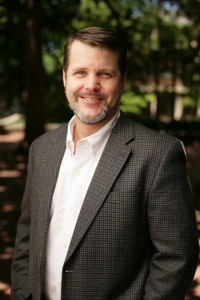VISE Fall Seminar – Michael I. Miga, PhD
VISE Fall Seminar
to be led by
Michael I. Miga, PhD
Harvie Branscomb Professor,
Professor of Biomedical Engineering,
Vanderbilt University

Date: Thursday, October 5, 2017
Location: Stevenson Center 5326
Time: 12:10 p.m. start, Noon COFFEE & COOKIES
Abstract:
Being able to obtain an independent National Institutes of Health (NIH) grant award can be daunting even to the most accomplished investigators. While having great research is a necessary ingredient, you also need to have a complete strategic approach with respect to grant preparation, grant submission, responding to reviews, and your programmatic goals. Without a plan, a great deal of time can be wasted in determining the best approach to present your work to the scientific reviewing community. In this talk, grant writing tips will be discussed with information for both faculty and graduate students to best present your work to the NIH reviewing community. In addition, common myths regarding the review process will be dispelled, a breakdown of how review is conducted at NIH will be provided, tips regarding the often ‘dreaded’ summary statement, and some common mistakes to avoid as well. Also being covered are some new guidelines that have been enacted in the last year – namely, biosketch changes, and the new requirements associated with Rigor and Reproducibility. Lastly, with time permitting, some resources regarding common study sections frequented by VISE, and how you can get some experience with the NIH review process. As with everything when it comes to world of pursuing grants, this talk description concludes with the following caveat … all information disseminated is IMHO (in my humble opinion).
Bio:
Dr. Miga joined the faculty of the Biomedical Engineering Department in November of 2000. His expertise is in the area of numerical methods and biomedical modeling and is currently the director of the Biomedical Modeling Laboratory. The focus of the Biomedical Modeling Laboratory is on developing new paradigms in detection, diagnosis and treatment of disease through the integration of computational models into research and clinical practices. He teaches courses in numerical methods, computational modeling for biomedical applications and biomechanics.

